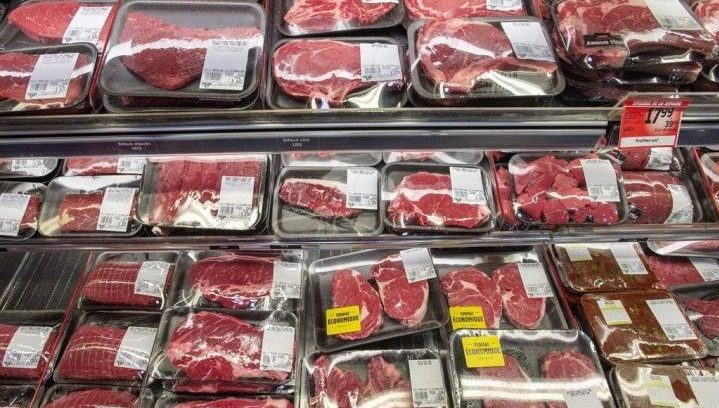With some Canadian meat processing plants dealing with COVID-19 outbreaks, the Saskatchewan Cattlemen’s Association says in time, the province could see an impact on prices and the variety of meat on grocery store shelves.

Recently, the Cargill Meat Solutions plant south of Calgary, which represents more than one-third of Canada’s beef-processing capacity, announced it’s idling its second shift of workers.
This comes after its union recently reported dozens of COVID-19 cases and called for a full, two-week closure with full compensation for its workers.
Other plants, including an Olymel pork plant in Montreal, are slowly reopening after the virus forced a two-week shutdown.
As for what this means for consumers in Saskatchewan, Lee said the impact will really depend on the store.
“We’ve got a very dynamic and diverse food system in Canada… it will really depend on which store you’re in.”
At the same time, Lee said with some plants in the province seeing a slowdown due to social distancing, producers could take a financial hit.
“There are impacts on all the food production from COVID-19 and some of it is availability of workers, some of it is availability of processing, access to markets — it’s hitting everywhere,” Lee said.
“We continue to talk to government about making sure they can help us get through this so we are continuing to produce food now and the year after that and the year after that.”
But Lee said despite the changes and challenging times, the one thing consumers need to know is that food safety isn’t taking a back seat.
“On Monday, the prime minister announced extra funding for the food inspection agency to allow them to work the overtime, to staff the extra time to be in places — that our food safety system isn’t being compromised,” Lee said.
The industry continues to lobby all levels of government for support, Lee added, in order to deal with the uncertainty and credit challenges.
“How long the effects are and how big the effects are really depends on how long this goes, and the longer it goes, we will probably see more of the fallout,” Lee said.
— With files from Rachael D’Amore and The Canadian Press.
Questions about COVID-19? Here are some things you need to know:
Health officials caution against all international travel. Returning travellers are legally obligated to self-isolate for 14 days, beginning March 26, in case they develop symptoms and to prevent spreading the virus to others. Some provinces and territories have also implemented additional recommendations or enforcement measures to ensure those returning to the area self-isolate.
Symptoms can include fever, cough and difficulty breathing — very similar to a cold or flu. Some people can develop a more severe illness. People most at risk of this include older adults and people with severe chronic medical conditions like heart, lung or kidney disease. If you develop symptoms, contact public health authorities.
For full COVID-19 coverage from Global News, click here.









Comments